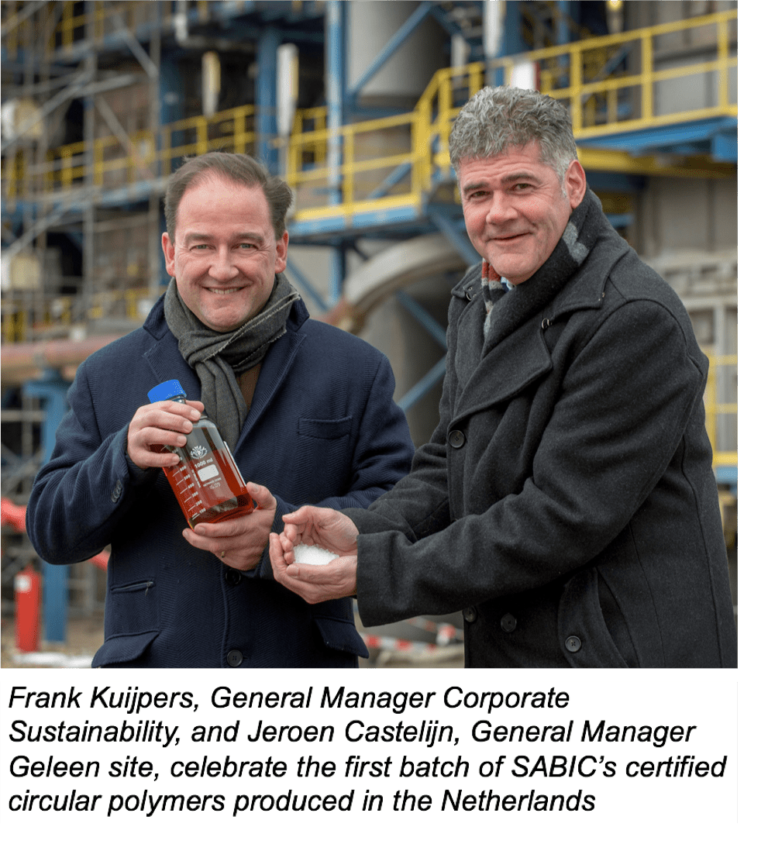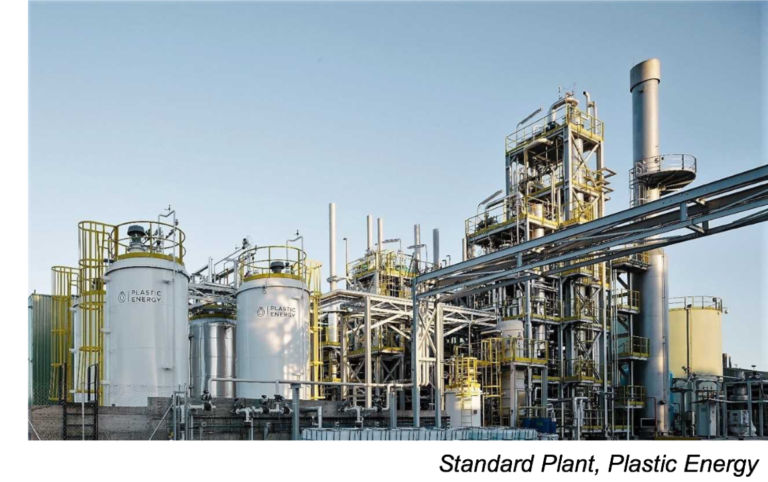April 15, 2019
Plastic has become essential for both packaging and durable goods since it was launched onto the market over sixty years ago. But the same properties that give plastics their indispensable value to our modern society, together with an inadequate use at end-of-life, have led to the accumulation of plastic litter in rivers, oceans and beaches worldwide. Everyone is agreed that we need to bring waste plastic back into use before it pollutes. Now SABIC, a global leader in the chemical industry, has announced a ground-breaking project to convert this waste back into the new plastics that protect and preserve life’s essentials like food and medicines. This plastic will be truly ‘circular’, because it has been made from waste and not from virgin oil or gas.

SABIC has been working with ISCC since 2014 when it received a sustainability certification for bioplastics. Mark Vester, European Director for Polyethylene says: ‘Sustainability, a core value of the company, has driven us to develop and launch our certified circular polymers. We share ISCC’s commitment to the circular economy and we are very pleased to have obtained the first ISCC PLUS certification for circular materials’.
The SABIC process effectively deals with the waste plastic that can’t easily be recycled with existing technology. Conventional plastic recycling is only suitable for a limited range of products, such as rigid or flexible packaging. Most films and multilayer packaging currently go to landfill or incineration. Less than 10% of plastic waste1 is recycled.
The key advantage of the new process is that the certified circular polymer has similar properties to the original material. It is of high quality, excellent purity and it is safe for food packaging. Three leading brands have already announced that they are teaming up with SABIC to use these certified circular polymers in products that they will introduce to the market in 2019. Mark Vester again: ‘Certified circular polymers will help SABIC’s customers to meet consumer demand for more sustainable products. Working together, industry can help to solve the problem of waste plastic.’
The process starts with conversion of the mixed plasticwaste into a liquid, called TACOIL, by PLASTIC ENERGY, using heat in an oxygen-free environment. The liquid is then mixed with traditional feedstock and fed into SABIC’s petrochemical cracking process at Geleen in the Netherlands, where it is converted directly to the building block molecules for new plastics.

This co-processing of waste and virgin material takes advantage of the economies of scale and existing investments of the petrochemicals industry, whilst turning them to a circular use. Employing existing processes also allows the circular plastic to be a ‘drop-in’ alternative for even the most challenging of packaging applications. Carlos Monreal, CEO of PLASTIC ENERGY says; ‘We are delighted to have our TACOIL process independently certified, setting a new standard, by operating the first waste plastic conversion facility with ISCC certification.’
ISCC supports recycling and the development of the circular economy with its certification approach, which is in line with the targets of the European Waste Directives. ISCC PLUS covers all types of waste and residues, non-bio renewables and recycled carbon materials and fuels. Both pre- and post-consumer waste are covered.
ISCC PLUS certification for the circular economy offers two options. Certified circular and non-circular material can either be physically segregated, or mixed but accounted for separately using the mass balance method. SABIC uses mass balance accounting to produce certified circular polymers. So, for each tonne of waste plastic fed into the cracker, based on the conversion factor, a respective amount of output plastic can be classified as circular. The ISCC PLUS guarantee of a certified supply chain is maintained in the new circular certification. Prof. Gernot Klepper, Chair of the ISCC eV. Board says: ‘ISCC PLUS provides a robust certification for the circular economy and we are delighted that SABIC and PLASTIC ENERGY are the first certificate holders for circular materials’.
So how will the technology help to keep waste plastic out of the oceans? Well, challenging, mixed plastic waste will now have a direct route back into the supply chain, giving it an economic value. This value will be further enhanced by the measures that governments are introducing to boost demand for recycled plastic. The increased value of the waste will help to pay for its collection, thus reducing the risk that it ends up in the environment. ISCC PLUS certification provides the guarantee that the material really is recycled, and consumption of virgin feedstock is reduced.
The commitment and investment of SABIC, their customers and suppliers is not just a throwaway gesture. The technology is widely applicable with potential for exploitation in many countries. Companies and governments should waste no time in supporting this initiative, as it is one of the leading solutions to the problem of plastic pollution.
For more information on ISCC certification please contact ISCC at info(at)iscc-system.org.
Click here to read the article as pdf
1https://news.nationalgeographic.com/2017/07/plastic-produced-recycling-waste-ocean-trash-debris-environment/